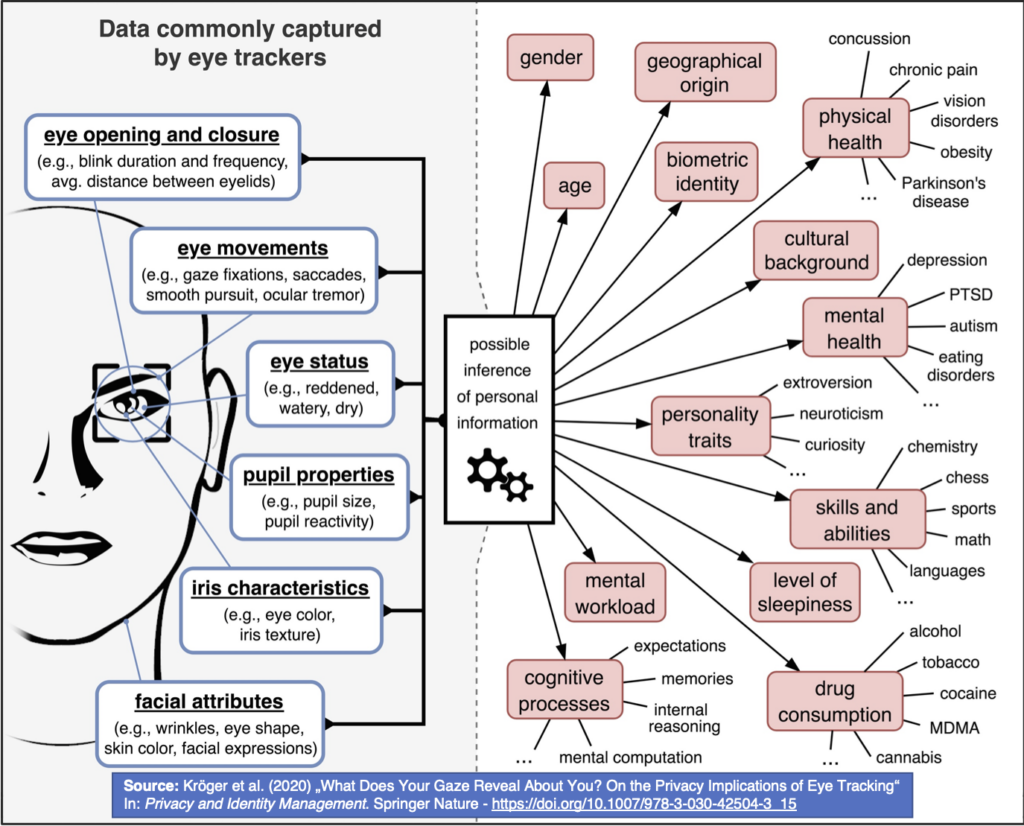Technologies to measure gaze direction and pupil reactivity have become efficient, cheap, and compact and are finding increasing use in many fields, including gaming, marketing, driver safety, military, and healthcare. Besides offering numerous useful applications, the rapidly expanding technology raises serious privacy concerns. Through the lens of advanced data analytics, gaze patterns can reveal much more information than a user wishes and expects to give away.
Drawing from a broad range of scientific disciplines, our article “What Does Your Gaze Reveal About You?” provides a structured overview of personal data that can be inferred from recorded eye activities. Our analysis of the literature shows that eye tracking data may implicitly contain information about a user’s biometric identity, gender, age, ethnicity, body weight, personality traits, drug consumption habits, emotional state, skills and abilities, fears, interests, and sexual preferences. Certain eye tracking measures may even reveal specific cognitive processes and can be used to diagnose various physical and mental health conditions.
The issue becomes particularly relevant in view of current plans to widely integrate eye-tracking sensors into VR headsets. By portraying the richness and sensitivity of gaze data, our article provides an important basis for consumer education, privacy impact assessments, and further research into the societal implications of eye tracking.
The figure below offers a brief overview over the findings compiled in our article. The full-text is available open-access on SpringerLink.

Image source: Kröger et al. (2020). What Does Your Gaze Reveal About You?
Our article has received encouraging feedback and attention on Twitter (e.g., from Jordan Peterson and Steve Stewart-Williams), on Reddit, on Facebook, across news outlets (e.g., Real Clear Science, Curiosity Daily) and even by the Information Technology & Innovation Foundation in Washington, D.C.
We have summarized our findings in a Twitter thread:
Here are some other popular tweets that have mentioned our article (for a full overview of the coverage on Twitter, see Plu.mx).